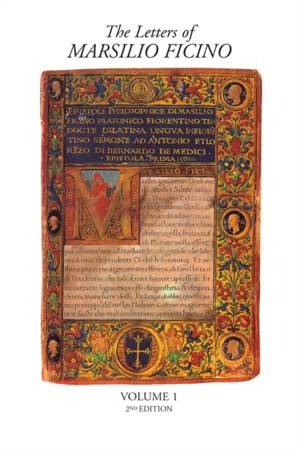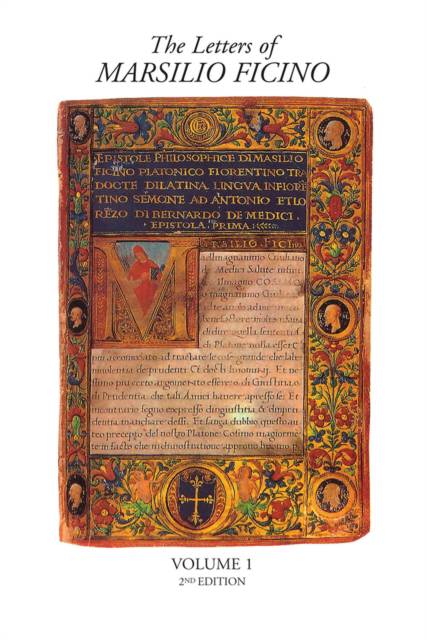
- Retrait gratuit dans votre magasin Club
- 7.000.000 titres dans notre catalogue
- Payer en toute sécurité
- Toujours un magasin près de chez vous
- Retrait gratuit dans votre magasin Club
- 7.000.000 titres dans notre catalogue
- Payer en toute sécurité
- Toujours un magasin près de chez vous
The Letters of Marsilio Ficino
Volume 1 2nd Edition
33,95 €
+ 67 points
Description
Marsilio Ficino of Florence (1433-99) was one of the most influential thinkers of the Renaissance. He put before society a new ideal of human nature, emphasising its divine potential. As teacher and guide to a remarkable circle of men, he made a vital contribution to changes that were taking place in European thought. For Ficino, the writings of Plato provided the key to the most important knowledge for mankind, knowledge of God and the soul. It was the absorption of this knowledge that proved so important to Ficino, to his circle, and to later writers and artists. As a young man, Ficino had been directed by Cosimo de' Medici towards the study of Plato in the original Greek. Later he formed a close connection with Cosimo's grandson, Lorenzo de' Medici, under whom Florence achieved its age of brilliance. Gathered round Ficino and Lorenzo were such men as Landino, Bembo, Poliziano and Pico della Mirandola. The ideas they discussed became central to the work of Spenser, Shakespeare, Donne, Botticelli, Michelangelo, Raphael, Dürer, and many other writers and artists. The first letter in this volume is from Cosimo to Ficino, inviting him to visit him on his estate at Careggii and to bring with him 'Plato's book on The Highest Good' (the Philebus) which Cosimo had asked him to translate in 1463. Though there is some uncertainty about the precise nature of Ficino's Platonic Academy, in another letter he replies to a correspondent's request for 'that maxim of mine that is inscribed around the walls of the Academy'. This revised edition has corrected errors made in the original translation more than four decades ago, and the notes to the letters and the biographical notes have incorporated much new material from scholarship on the period which has grown enormously in the intervening years and continues to flourish.
Spécifications
Parties prenantes
- Editeur:
Contenu
- Nombre de pages :
- 320
- Langue:
- Anglais
- Collection :
Caractéristiques
- EAN:
- 9780856835162
- Date de parution :
- 01-11-18
- Format:
- Livre relié
- Format numérique:
- Genaaid
- Dimensions :
- 155 mm x 236 mm
- Poids :
- 675 g






